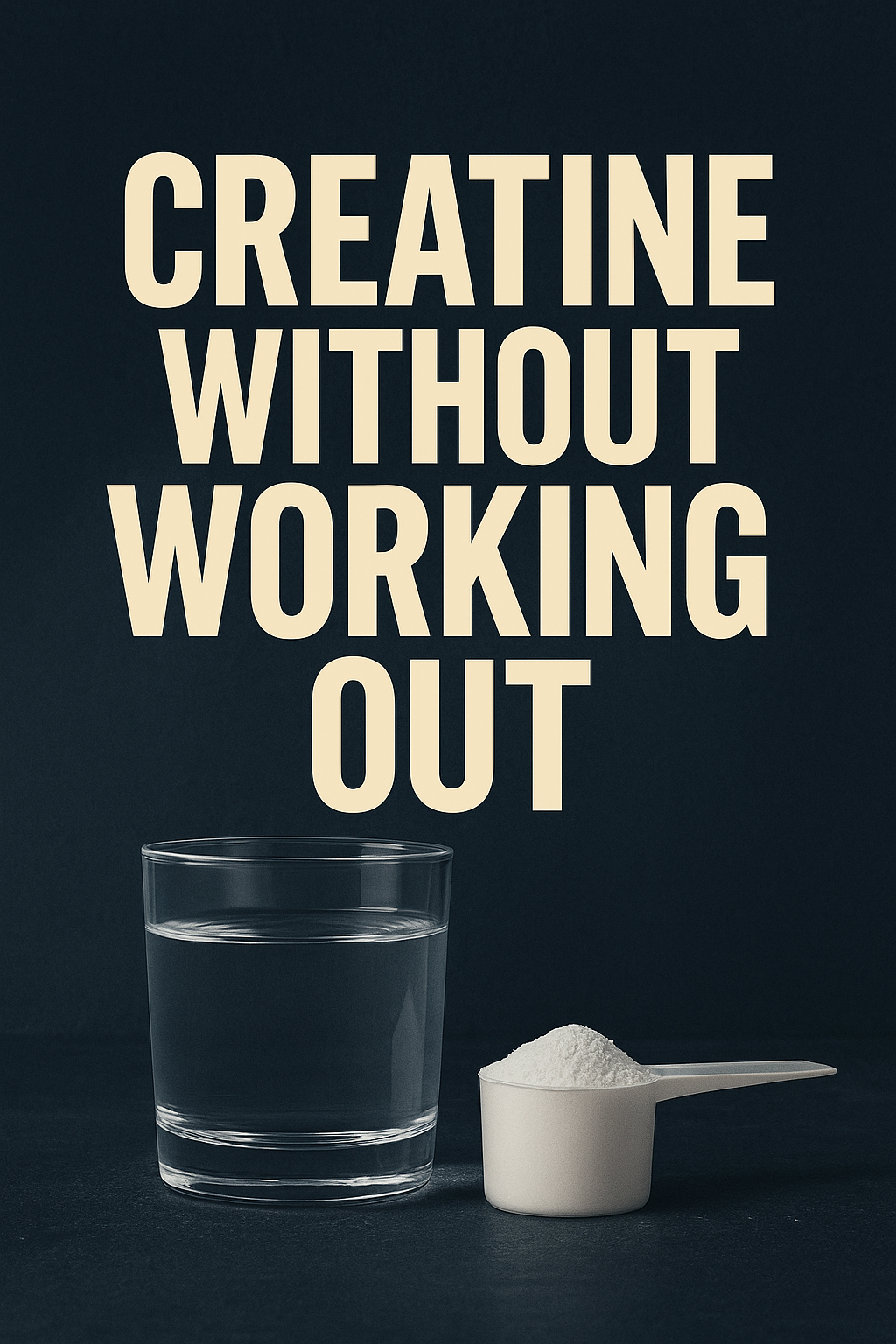
Yes—Creatine Works Without Working Out. Here’s How:
Jacob EllisShare
Creatine is one of the most studied and trusted supplements out there. Most people associate it with heavy lifting and intense training, but here’s the truth: you don’t need to be in the gym to benefit from it.
Let’s break it down below.
What Creatine Actually Does
Creatine is a naturally occurring compound found in muscle and brain tissue. It helps the body regenerate ATP, your cells’ primary energy source; especially during short, intense bursts of effort. While we get small amounts from red meat and fish, supplementing with FORTIS Creatine Monohydrate delivers a clinical 5g dose that keeps your system loaded, day in and day out.
And that matters, whether you’re lifting or not.
Real Benefits, Even Without a Workout
You don’t need a barbell or treadmill to get results. Research continues to show that creatine supports key areas of physical and mental performance in people from all walks of life.
1. Sharper Thinking, Better Focus
Creatine plays a central role in brain energy metabolism. A 2003 study in Neuropsychology showed improvements in short-term memory and mental processing speed in healthy adults. Another study published in 2007 found that older adults taking creatine performed better in memory tasks and reported less mental fatigue.
Bottom line: Creatine helps keep your mind focused, alert, and running smoothly—even when you’re not training.
2. Preserve Lean Muscle As You Age
Muscle loss due to aging—known as sarcopenia—can affect strength, balance, and long-term health. A study in the Journal of Gerontology demonstrated that creatine helped older adults maintain lean muscle mass and physical function, without requiring a formal training program.
Key point: Maintaining muscle is about more than looks, it’s tied to longevity. Creatine helps you stay strong.
3. Mood Support + Mental Energy
Emerging research has connected creatine to improvements in mood and emotional resilience. A 2012 clinical trial in Biological Psychiatry found that women supplementing with creatine saw noticeable improvements in depression symptoms when used alongside conventional treatment.
Translation: Creatine may play a role in mental energy and emotional balance, even for non-athletes.
How to Use Creatine Without Training
Keep it simple. Take 5g per day. Timing doesn’t matter much, just stay consistent. There’s no need to cycle or load creatine if you’re not exercising.
Why FORTIS Creatine Monohydrate?
We designed this formula to meet the highest standard: 5g of pure, unflavored creatine monohydrate with no fillers, sweeteners, or fluff. Whether you’re focused on mental clarity, energy, or long-term health, this product fits.
Explore FORTIS Creatine Monohydrate
Debunking Common Myths
“Creatine only works if you work out.”
Not true. It supports energy production across all tissues, including the brain. That’s why non-athletes still benefit.
“Creatine causes bloating.”
Creatine draws water into your muscle cells—not under your skin. That’s cellular hydration, not fat gain.
“Long-term creatine use is unsafe.”
Decades of clinical research show that creatine is well-tolerated and safe for both active and sedentary individuals.
Who Can Benefit Most From Creatine Without Training
- Adults looking to maintain energy and cognitive sharpness
- Professionals dealing with mental fatigue or stress
- Aging individuals who want to preserve strength
- Anyone recovering from injury or avoiding strenuous activity
Final Thoughts
Creatine isn’t just for athletes. It’s a versatile, evidence-backed supplement that supports cognitive health, energy metabolism, muscle preservation, and emotional balance. You don’t need to lift to see the upside.
If you want results without the marketing fluff, go with what works. FORTIS Creatine Monohydrate delivers exactly what your body needs.
-Jake Ellis, FORTIS
Sources:
-
Rae, C., et al. (2003). The influence of oral creatine supplementation on human cognition. Neuropsychology.
-
Tarnopolsky, M.A., et al. (2007). Creatine monohydrate enhances strength and body composition in older adults. Journal of Gerontology.
-
Lyoo, I.K., et al. (2012). Creatine monohydrate augmentation of antidepressant treatment in women with major depressive disorder. Biological Psychiatry.
